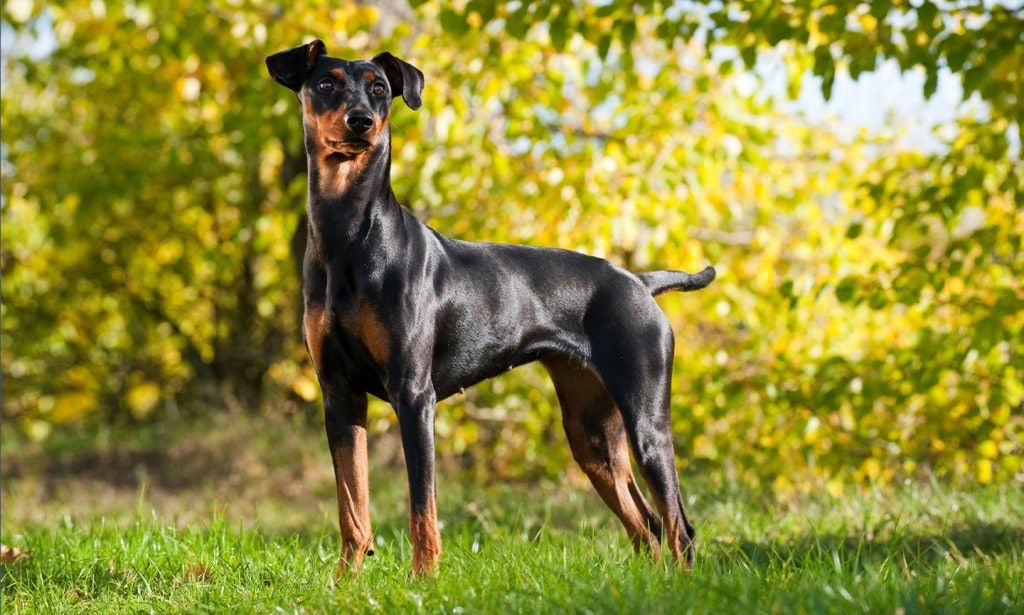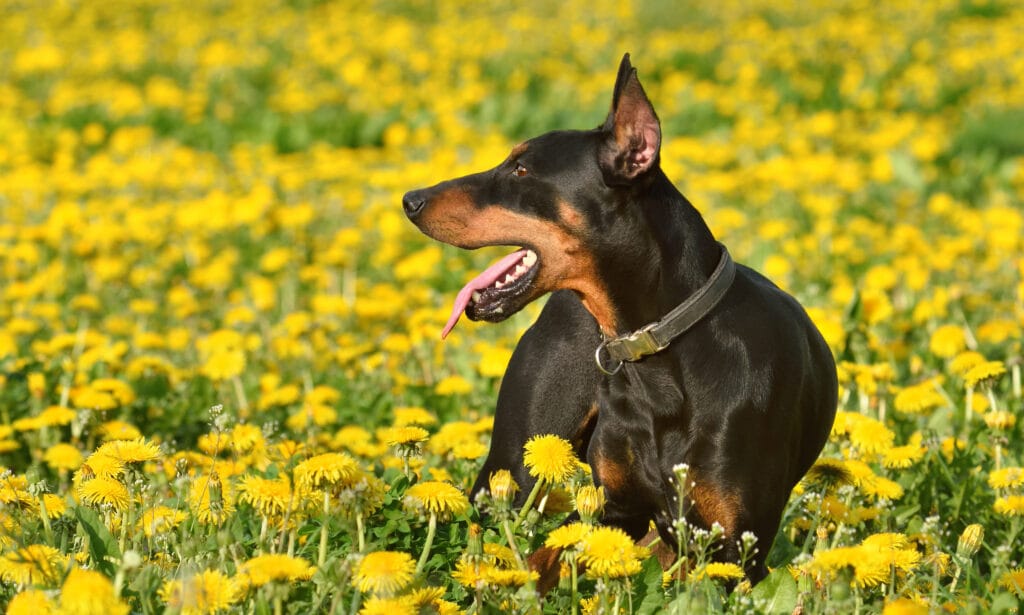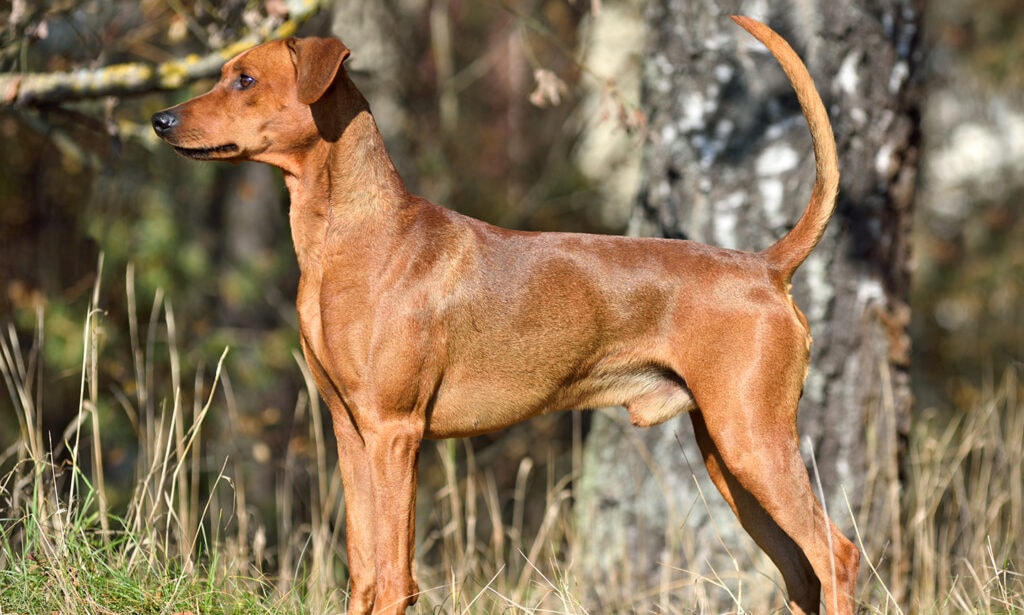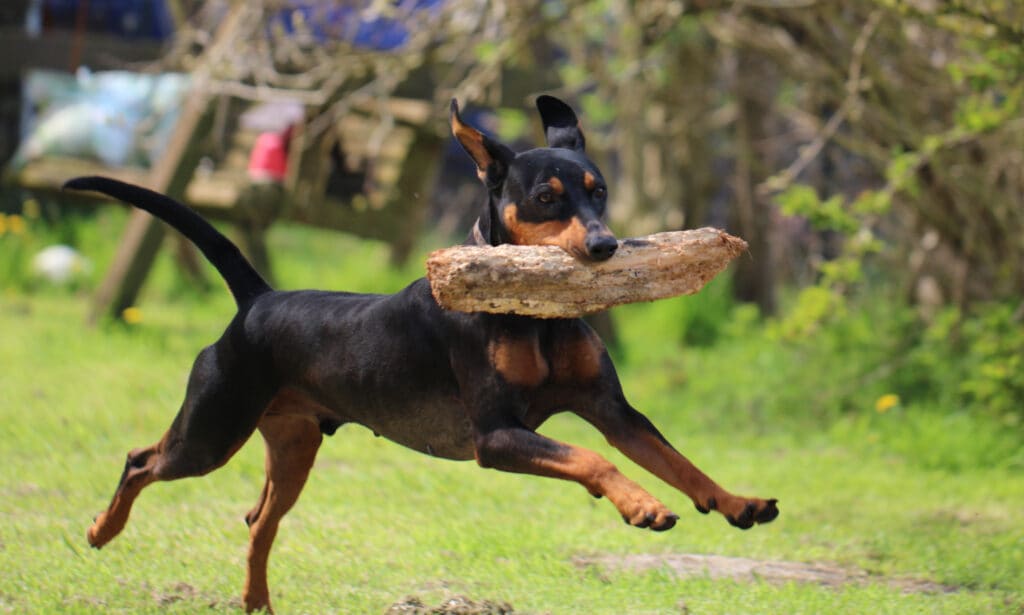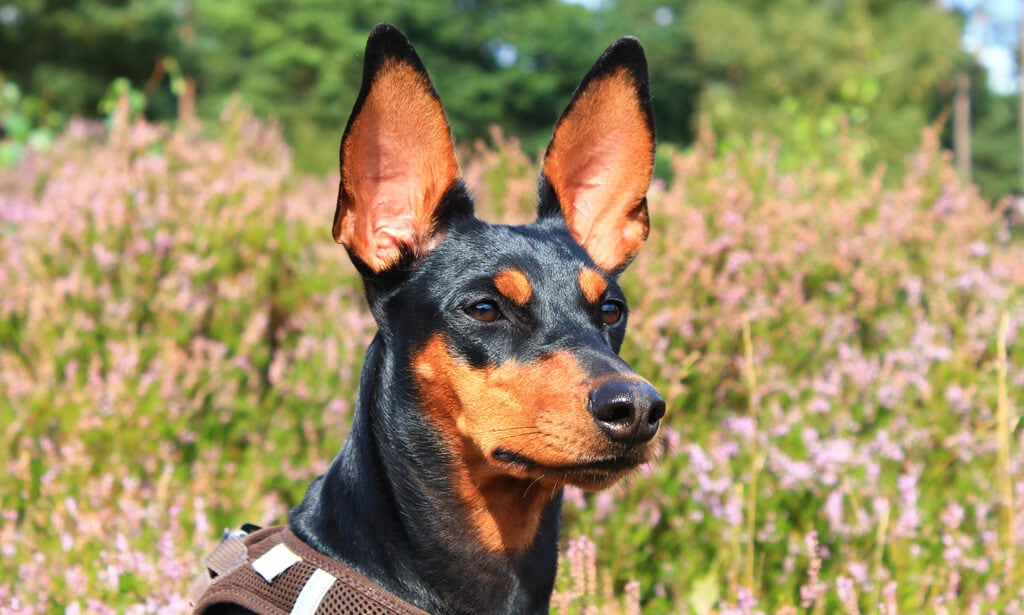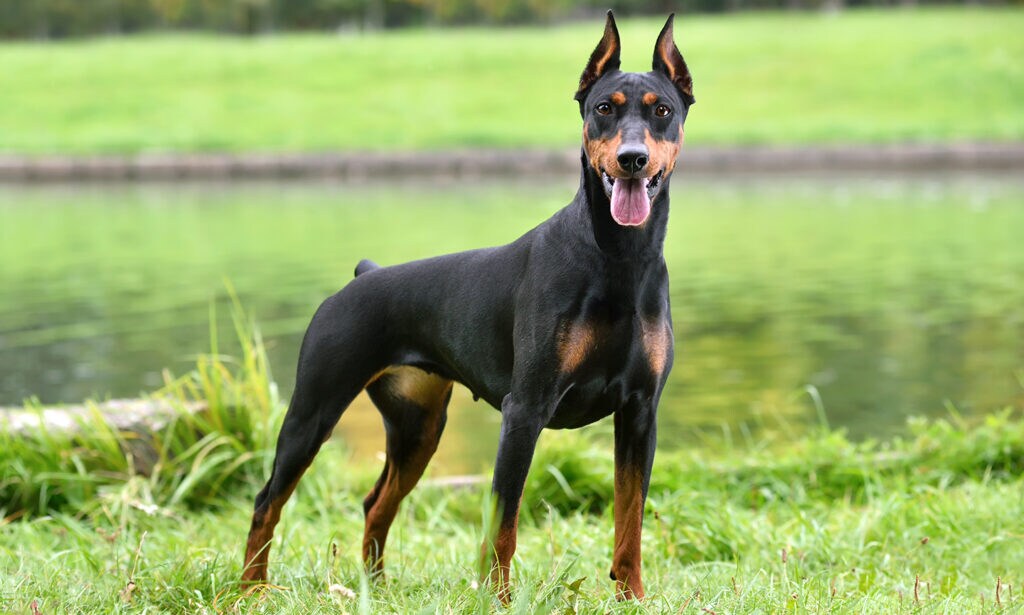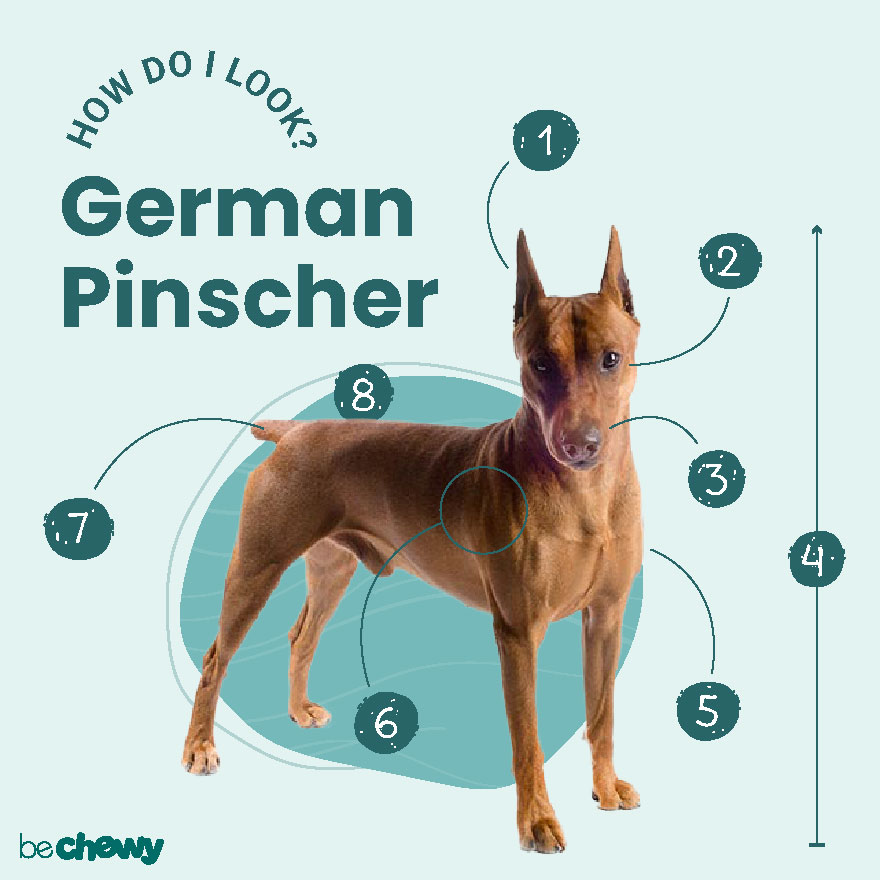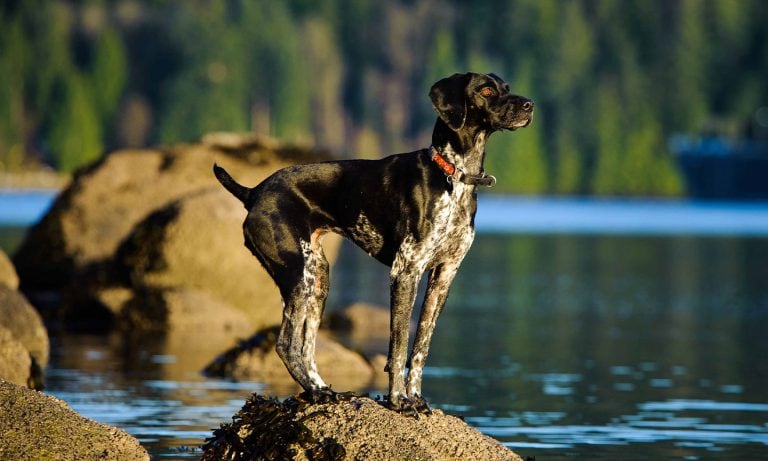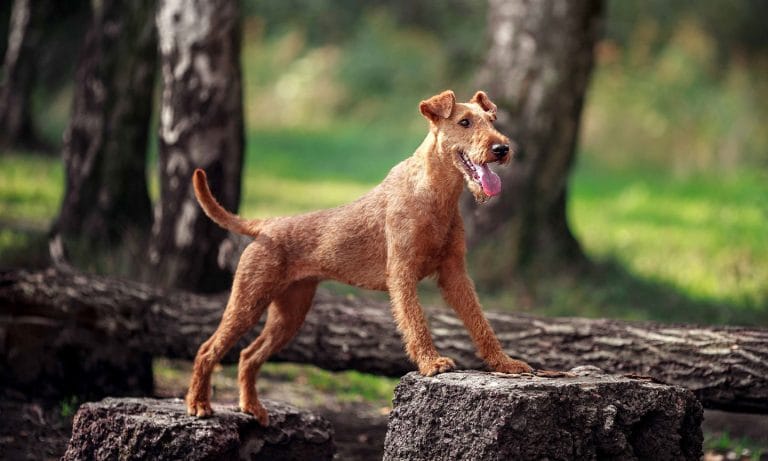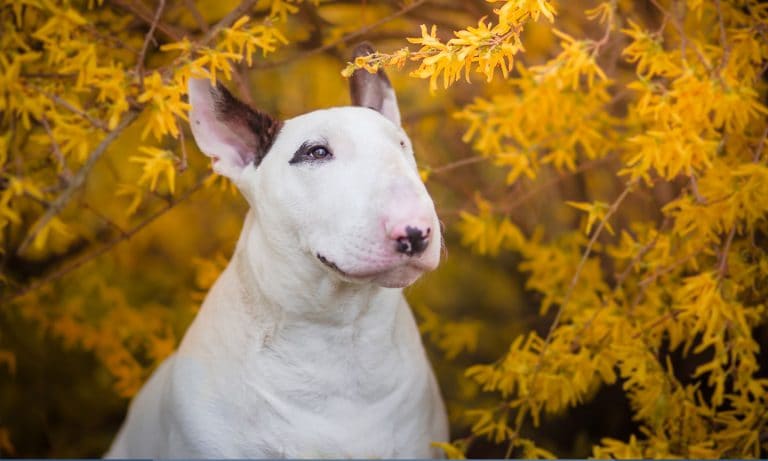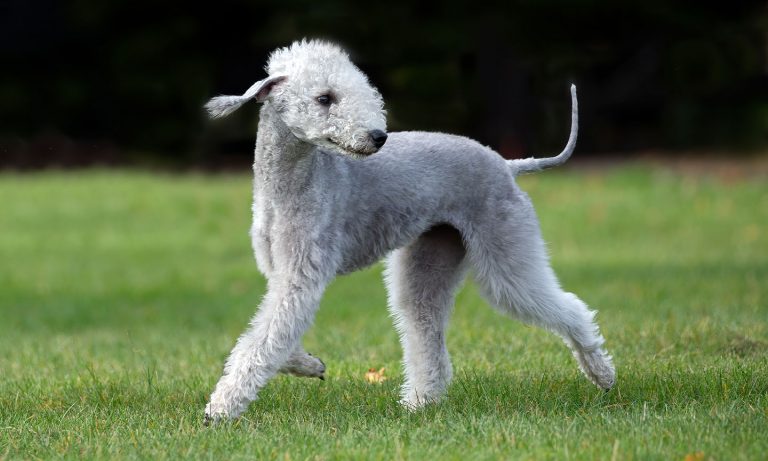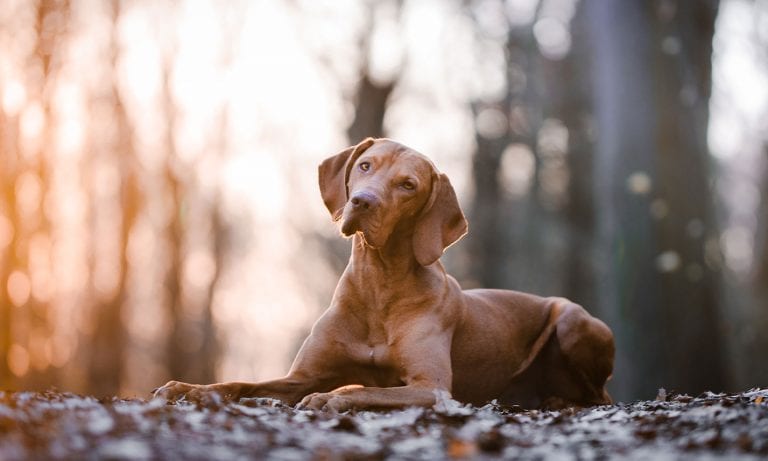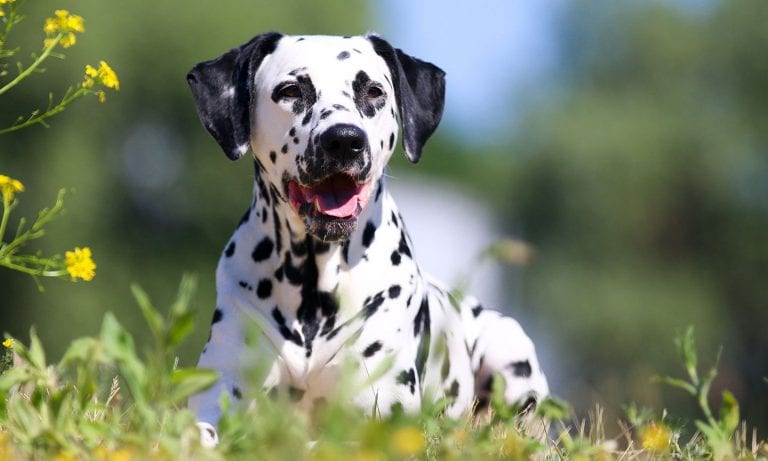Think of the German Pinscher as your personal drill sergeant—with a mischievous side. These smart pups are full of energy and will make sure you’re up and at ’em for a morning jog. With their sleek coat and confident gait, you’ll be trying to match their perfect form. But these dogs have plenty of personality, too; they’re ready to join you in all your hijinks (and maybe create some of their own). Fiesty, loving and a little sassy, this pup’s a toughie with a heart of gold.
Breed Snapshot
Temperament:
EnergeticStrongTough GuyCoat Color:
Fawn (Isabella)RedBlack
Best For
Because German Pinschers have a sleek, shiny coat that needs minimal grooming, the bulk of your time will be spent in exercising and training this super-smart, super-athletic and super-feisty pup. Originally bred to hunt small critters, German Pinschers are best for experienced and active dog parents.
German Pinscher Temperament
The German Pinscher is an energetic and intelligent dog who is loyal and protective of their families. Their personality can include a strong-willed and assertive streak. (That’s why they’re not a good choice for first-time pup parents—you’ll likely need experience to teach them how to live in harmony with you.)
These dogs like to be busy, so plan to keep them occupied with exercise, puzzle toys and training. If you don’t give them something to do, they’ll find their own entertainment—and your shoes and your furniture may become unwilling participants.
German Pinschers were originally bred to hunt small critters, but now they focus their efforts on being a loving companion to their families and guardian of their home. These pups can do well with other dogs or older kids, but early socialization and training are important. German Pinschers may do OK with a cat they’ve been raised with since puppyhood; otherwise, they’ll always give chase. They tend to like a more peaceful home, which is why they may get along better with older kids who won’t startle them. It’s a good idea to teach children how to properly interact with dogs.
How to Care for a German Pinscher
German Pinschers have moderate maintenance needs. Their sleek, shiny coat needs minimal grooming and won’t shed excessively. Instead, the bulk of your time will be spent in exercising and training this active, intelligent pup.
German Pinscher Health
German Pinschers have a lifespan of 12-14 years, and there are several health concerns associated with the breed. With knowledge, proper care and routine vet checkups, you can help your pup live the healthiest life possible.
- Hip Dysplasia: This often-genetic condition occurs when the ball and socket of the hip is malformed and grinds instead of slides smoothly, causing your pup pain. Treatment options include weight management, exercise restriction, physical therapy, joint supplements, pain medications and, in severe cases, surgery.
- Von Willebrand’s Disease: This is a hereditary disease that causes the blood not to clot properly. Treatment may include blood transfusions, but dogs don’t usually need treatment unless they’re having surgery or are severely injured. Management may involve a change in activity to prevent injury.
- Heart Problems: There is a small incidence of heart problems in German Pinschers, often caused by the weakening of a valve that is detected as a heart murmur. If your vet hears a murmur, they will likely recommend seeing a veterinary cardiologist for an echocardiogram (ultrasound of the heart) to better determine the underlying cause and best treatment.
- Eye Problems: German Pinschers may be at risk for cataracts and corneal dystrophy, an inherited condition in which crystals form on the cornea and leads to vision loss. Cataracts may be corrected with surgery. While there is no treatment for corneal dystrophy, dogs with vision loss can still lead happy lives.
German Pinscher History
Originating in southern Germany, the German Pinscher is one of that country’s oldest breeds. It was a foundation breed for the Doberman Pinscher and Miniature Pinscher, and in 1885, the dog was first listed in German records as a smooth-coated Pinscher. Originally, there were two types in the breed: smooth-coated and wire-coated. In the 1900s, the two types were split into two breeds: German Pinscher and Standard Schnauzer.
The German Pinscher dog almost went extinct after both World War I and World War II, with no litters registered in West Germany from 1949 to 1958. But Werner Jung, a breed enthusiast in Germany, saved the day—and the breed—when he smuggled a female out of East Germany and bred her with several Miniature Pinschers.
In the late 1970s and early 1980s, German Pinschers began to show up in the United States and were bred in small numbers. The American Kennel Club recognized the breed in 2003.
Do you want to add a German Pinscher to your family? You can find a reputable breeder at the AKC’s website; a puppy can cost $650-$1,000, with some as much as $2,500. For that price, you’re likely getting a puppy who’s been screened for health and temperament issues and may come with pedigree papers. You can also contact German Pinscher rescues to adopt a pup or keep an eye out for the breed at a local rescue. Or, search Chewy’s database of adoptable dogs in your area.
FAQs
Do German Pinschers shed?
German Pinschers don’t shed much because the dog is short-coated. They do shed occasionally, but you won’t be sweeping up piles of fluff or contending with hair all over the couch.
Are German Pinschers good family dogs?
German Pinschers can be good family dogs in the right setting. These are very energetic dogs who don’t like chaotic homes, so they do better in families with older kids. With proper socialization, these dogs can be good members of the family. It’s also important to teach children how to interact with dogs.
How big do German Pinschers get?
German Pinschers are medium dogs. They can get up to 20 inches tall at the shoulder and can weigh up to 45 pounds.
How long do German Pinschers live?
German Pinschers live 12-14 years, giving you a lot of time to make wonderful memories with this dog.
Do German Pinschers bark a lot?
German Pinschers do bark, but not as much as, say, a Silky Terrier. German Pinschers take their guard-dog duties seriously, so they will bark to alert you when something’s amiss or when new people or dogs come to your door.
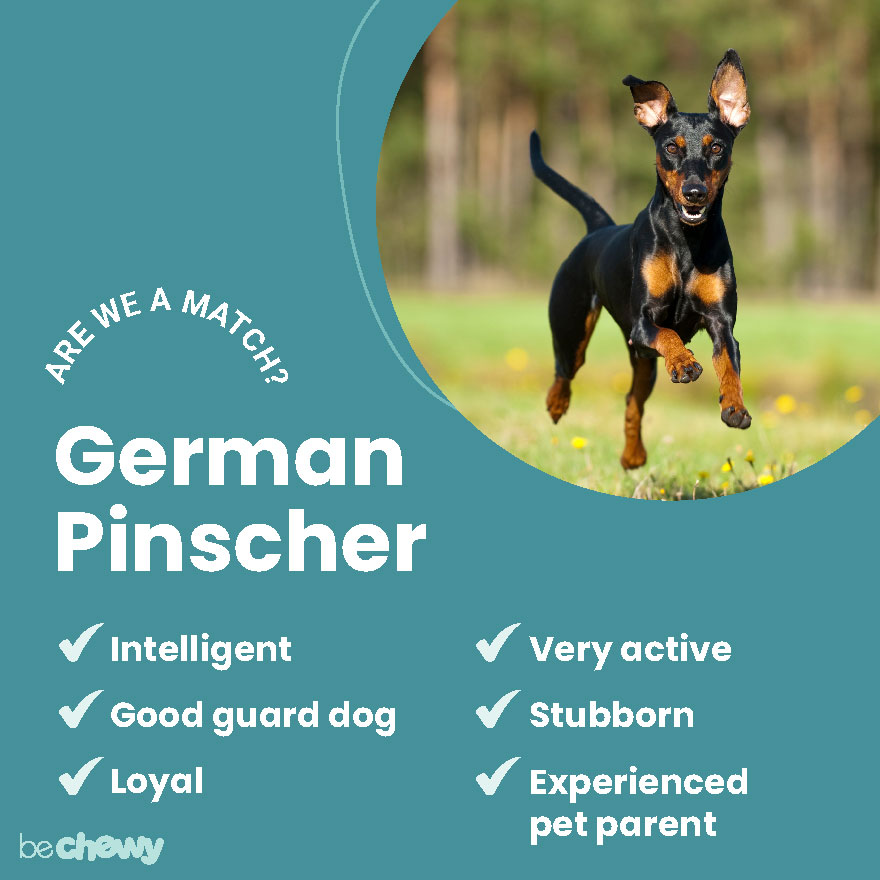
Top Takeaways
It would be hard to find a more loyal, dedicated protector than the German Pinscher. These smart and strong-willed dogs need an experienced pet parent who understands what they need—a confident, calm and patient leader. German Pinschers are active pets who need a family willing to include them on all their adventures.
Expert input provided by Dr. Sarah J. Wooten, DVM, CVJ, a veterinarian at Sheep Draw Veterinary Hospital in Greeley, Colorado; and trainer Amber Walker, KPA-CTP, zoologist and owner of Animal Intuitions.
Breed characteristic ratings provided by Dr. Wooten; dog trainer and behavior consultant Irith Bloom, CPDT-KSA, CBCC-KA, CDBC, owner of The Sophisticated Dog, LLC, in Los Angeles; and certified animal behavior consultant Amy Shojai, CABC, in Sherman, Texas.
The health content was medically reviewed by Chewy vets.
Photo credit for “How do I look?” American Kennel Club

Search for Adoptable German Pinschers Near You
Female Names
- Luna
- Roxy
- Athena
- Ava
- Bella
- Coco
- Olive
- Hana
- Naomi And Zarah
- Minnie
Male Names
- Apollo
- Rusty
- Anubis
- Boaz
- Nucky
- Max
- Blossom
- Striker
- Pluto
- Kevin
Share:
